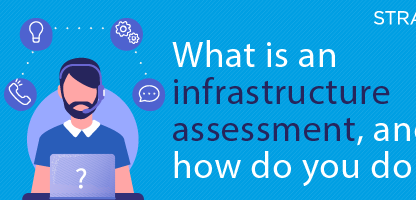VoIP Providers & Session Initiation Protocol (SIP) Solutions
Overview
Powerful VoIP and SIP solutions for your business
VoIP (Voice over Internet Protocol) is an increasingly popular way of communication and can be used for both office and home use. VoIP services to convert your spoken words to an electronic signal which travels across the Internet prior to reaching the destination.
The electronic signal is then converted into a standard telephone signal before it gets to the other end. VoIP will allow you to make a call from a computer, a dedicated VoIP telephone, or even a traditional telephone connected to a VoIP converter.
While SIP is a very flexible protocol that has great depth. It was designed to be a general-purpose way to set up real-time multimedia sessions between groups of participants. In addition to simple telephone calls, SIP can also be used to set up video and audio multicast meetings, or instant messaging conferences.
SIP allows for optimization of network capacity, adds flexibility to your existing PBX or key system investments, and provides the foundation for adding advanced services as your business needs.
StrataCore can help bring clarity to this complex marketplace to ensure you secure the best voice solution to meet your specific requirements and business needs.
Features of VoIP Services
A few of the features of VoIP Services:
One of the key features of VoIP services is that they enable businesses to take their communications with them no matter where they are located. For businesses that travel frequently, this can be extremely beneficial as it means they don’t need to hire additional staff to provide phone support to their clients. Businesses will find the features and options which are provided by some voice services to be invaluable.
Most VoIP systems are based on the concept of ‘hop’ networks, which are simply long-distance calls that are routed using IP packets. There are many advantages to using VoIP services, and one of the main ones is the fact that they are significantly less expensive than traditional telephone systems. This is because the overhead associated with using VoIP is passed onto the consumer.
When using standard telephone systems, the additional costs are added to the cost of making the call – this in turn makes the cost of long distance calls a lot more expensive than they would otherwise be. Because of this, many consumers are looking at VoIP systems as a viable alternative to traditional telecommunications.
A safe way to save money when choosing a provider for your VoIP system is to check out what the providers have to offer about cost savings. An effective way to save on communication costs is to use a provider that offers a cloud-based voice over internet protocol (VoIP) service. A few VoIP providers now offer hosted VoIP services where the entire telephony system is housed on a remote server and the communication between the users is done entirely online. The hosted VoIP services typically include call forwarding, voicemail, and web conferencing features which are then bundled together for one low monthly fee.
It is also especially important to consider how your business communications will change once you switch to an IP PBX system. You may find that most of your employees will not require the use of traditional phones. If this is the case, and your company intends to focus on providing VoIP services to employees only, you will save a significant amount of money by using an IP phone service provider. If, however, you aim to implement VoIP into the workplace, it would be best to provide your employees with a basic telephone service and link them to the IP telephony network via a high-speed internet connection. The IP telephony network will allow them to call home via standard phone lines at reduced rates while allowing them to use their computer or laptop as a phone.
In general, small businesses have the greatest potential to benefit the most from adopting VoIP. Businesses that do not provide any form of traditional phone service to their employees will immediately see a significant amount of cost savings when switching to VoIP. As well, because of the immense potential savings, businesses that have switched to VoIP have begun to offer completely free services to their customers to encourage them to stick with the new service. The growing demand for IP phones means that there is no reason small businesses should not switch to using VoIP sooner rather than later.
Features of SIP Services
A few of the features of SIP Trunking:
No more BRIs, PRIs or PSTN gateways
SIP trunking eliminates the need to purchase BRIs (Basic Rate Interfaces), PRIs (Primary Rate Interfaces), or local PSTN gateways, lowering telephony costs.
No more separate voice and data connections
SIP trunking also reduces costs by eliminating the need for separate voice and data connections, and expands the potential for communications convergence using both voice and data together.
Turn all calls into local calls
The emergence of service providers offering SIP trunks to enterprises means that enterprises can outsource their PSTN connectivity to a third party. This reduces long-distance charges, as SIP calls travel over the Internet or provider’s IP network to a termination point owned by a service provider, where the call is then transferred to the local PSTN.
Get rid of costly 800 numbers, but not the convenience
Instead of providing customers with an “800 number,” a SIP trunking service provider with points of presence in multiple U.S. cities could establish local numbers in each city for customers to call. Those calls can be terminated locally and placed on the Internet for delivery to the company’s call center.
Let ENUM help
ENUM (Telephone Number Mapping) is used to automatically look up phone numbers to determine if they match a known SIP address, allowing the call to be completed over the Internet (instead of transferring it out to the PSTN). Since no traffic is placed on the PSTN, ENUM provides an additional means of cost-savings for businesses that communicate with other firms that use SIP for communications.
VoIP Networks Vs SIP Networks
VoIP Networks Vs SIP Networks - How the Difference Can Impact You
The significant difference between VoIP and SIP isn’t so much the differences in features, but in the method by which they are implemented and configured. VoIP, also called Voice over Internet Protocol, is a type of internet telephony service that provides a service that enables you to make telephone calls using internet technologies rather than via the use of traditional telephone lines.
VoIP has grown rapidly in recent years as more people realize its many benefits and have begun to make the switch. But just like all technologies there are advantages and disadvantages when it comes to VoIP. In this article we’ll compare VoIP and SIP to see what the difference is and how the two compare to one another.
What are the main differences between VoIP and SIP? The biggest difference between VoIP and SIP isn’t really a difference at all – it’s a comparison that is usually made on a narrower basis.
The main difference between VoIP and SIP really comes down to the method by which the two are implemented. SIP uses the standard internet protocols for communication, and VoIP uses proprietary extensions to those same protocols to provide its unique set of features. The primary difference between the two is how the data is sent and received over the lines.
The biggest difference between VoIP and SIP lies in the way in which a call is sent and received. Both VoIP and SIP allow for the transport of voice calls over internet connections, but VoIP uses a different method for achieving this. SIP uses packets of data sent over the internet to carry voice data. The VoIP network operators all have computers that send and receive packets of data, but those computers differ in the way they do so.
While VoIP networks do typically use the same protocols for both voice and data transmissions, they often differ in the order and extent of the protocols involved.
One example of the major difference between VoIP and SIP lies in the way that a caller’s IP address is treated when making a call over a SIP network. A typical SIP network will treat an IP address in the same way as it would a normal telephone number.
The voice information will be converted into packets and sent over the Internet, while the IP address of the caller will be treated the same as the destination IP address of the source computer. This means that if a caller wants to make a call in Ireland, they would not be able to make a call over an unvoiced VoIP telephone but could instead use an in converter to connect directly to the correct network.
The difference between VoIP and SIP lies in the protocols that are used to provide multimedia communications over the networks. While SIP uses a dedicated protocol for video and audio transmissions, VoIP uses a general-purpose protocol (the MPLS) to transmit data.
Related Resources

8 Critical Redlines for IT Services Contracts
Words matter when you’re doing business and it’s easy to get trapped in a bad contract if you’re not familiar with the technology language.

Evolve Your Business with the Help of an IT Broker
IT service brokers, such as StrataCore, exist to make your life easier by becoming your dedicated expert and advocate in the technology space.

Preparing your Business for the Post COVID-19 Era
What your organization should be doing now to prepare for the post pandemic? Learn here.

What is an IT Infrastructure Assessment, and how do you do one?
✔️ Get a clear vision of your current IT infrastructure and the steps you need to follow to evolve your business. Discover more here.
Approach
STRATAGY
Technical expertise and vision to help you develop a plan or technology roadmap.
STRATACARE
Real support from real people to help with implementation, management, and billing.
What Our Clients Say
-

Steve Talt
Sr. Director, Systems @ Getty Images“StrataCore’s team worked on our behalf to source the best solution for our needs. They helped to save us valuable time and money.”
-

Wayson Vannatta
CIO @ WatchGuard"When it comes to getting IT services, colo or a security vendor, the first partner I call is StrataCore. I count on them to know the heartbeat of the market and the best options for our business needs.”
-

Brian Capps
Director, Network & Data Center @ Zillow“StrataCore hires good people, the team has been super solid and enjoyable to work with.”
-

Brian Hanson
Sr. Director, Comcast Technology Solutions @ Comcast“The StrataCore team has helped immensely over the years. I don't have to augment my team with experts - you fulfill that role.”
-

Jai Dalal
VP, Internal IT & Technical Client Services @ WideOrbit“The value that StrataCore adds to an IT department is huge. This is especially the case when you have a lean organization that doesn't have the bandwidth to vet the market to obtain strategic pricing or services.”
-

Nick Halden
Solution Architect @ Vix Technology“The StrataCore team was very valuable in terms of saving us time and money. Throughout the entire process they provided candid, insightful assessments and market intelligence that brought real value to Vix.”
-

Dan Wilson
Principal Architect III @ Concur“The StrataCore team is exceptionally talented, knows the industry, and always delivers on promises.”
-

Carey Fujii
Former IT Director @ Tableau“What I enjoy most about StrataCore is their full end-to-end service. We met, gave StrataCore our requirements, and they engaged the appropriate vendors.”
-

Clifford Cancelosi
COO @ MultiScale Health Networks“StrataCore focuses on completely understanding customer needs/timeframes/etc.They ensure that it's accurately represented to the provider community.”
-

Jason Stefanski
Chief Information Officer & Principal @ GeoEngineers“StrataCore saved us countless hours. Their knowledge of the market and negotiation tactics resulted in saving us a substantial amount. We would not hesitate to recommend them as a very trusted advisor!”
-

Benny Zaidenberg
Sr. Director, Global Data Center & IT Ops @ Amdocs“Working with StrataCore was easy. It’s the best deal and a win/win situation for both our companies.”

